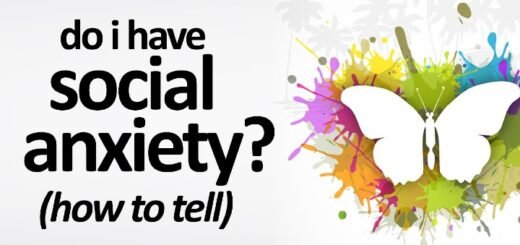Conquering Social Phobia: Overcoming the Fear of Public Speaking
Social phobia, particularly the fear of public speaking, is a prevalent issue that affects many individuals in New Zealand. This condition can significantly hinder personal and professional growth, as the impact of social anxiety often leads to avoidance behaviors that restrict opportunities for engagement and self-expression. Understanding the psychological underpinnings of this fear is crucial for effective intervention and support.
The social anxiety impact extends beyond individual experiences, influencing community dynamics and workplace productivity. In New Zealand, initiatives aimed at overcoming social phobia, such as those detailed on this resource, provide valuable strategies for individuals seeking to conquer their fears. By addressing the root causes and fostering a supportive environment, we can help individuals reclaim their confidence and thrive in social settings.
The Psychological Underpinnings of Social Phobia: Understanding the Fear of Public Speaking
Defining Social Phobia
Social phobia, clinically known as social anxiety disorder, is characterized by an intense fear of social situations where one may be judged or scrutinized. This disorder often manifests in the fear of public speaking, a common concern across various demographics. Individuals with social phobia fear being embarrassed or humiliated in front of an audience, often leading to avoidance of such situations altogether. In New Zealand, this anxiety can be particularly pronounced due to cultural expectations around performance and communication.
Understanding the intricacies of social phobia involves recognizing the cognitive distortions that accompany it. Those affected often engage in negative self-talk, believing they will embarrass themselves or that others will view them negatively. These perceptions can create a cycle of anxiety, where the anticipation of public speaking events leads to increased fear and avoidance behaviors.
The Psychological Mechanisms Behind the Fear
At the core of social phobia are several psychological mechanisms, including classical conditioning and cognitive biases. Classical conditioning occurs when a person associates a previously neutral situation, like public speaking, with a negative experience, such as being embarrassed in front of peers. This learned response can trigger anxiety long after the initial incident.
Cognitive biases play a significant role as well. Individuals with social anxiety often overestimate the likelihood of negative outcomes and underestimate their abilities to cope with social situations. For instance, a New Zealander preparing for a presentation may focus on the fear of stumbling over words instead of acknowledging their preparedness. This distorted thinking reinforces the fear and leads to avoidance, perpetuating the cycle of anxiety.
The Role of Biological Factors
Biological factors, including genetics and neurotransmitter imbalances, also contribute to social phobia. Research suggests that individuals with a family history of anxiety disorders may be more predisposed to developing social phobia. Neurotransmitters such as serotonin and dopamine play crucial roles in regulating mood and anxiety. An imbalance in these chemicals can exacerbate feelings of fear and anxiety, particularly in social contexts.
In New Zealand, the unique social environment may interact with these biological predispositions. The societal emphasis on achievement and public performance can amplify the feelings of inadequacy in those struggling with social phobia. Understanding these biological underpinnings can help individuals recognize that their fears are not merely personal failings but also influenced by biological and genetic factors.
Cultural Influences on Social Anxiety
Cultural norms and expectations significantly influence the manifestation of social phobia. In New Zealand, the cultural emphasis on “tall poppy syndrome,” where individuals may downplay their achievements to avoid standing out, can exacerbate feelings of anxiety related to public speaking. This societal pressure can lead to a fear of judgment and criticism, making it challenging for individuals to express themselves openly.
Moreover, the diverse cultural landscape in New Zealand means that individuals from various backgrounds may experience social phobia differently. For example, Māori individuals might face unique challenges related to the cultural significance of public speaking and storytelling. Understanding these cultural influences is vital for tailoring effective interventions.
Impact of Social Anxiety on Daily Life
The impact of social anxiety on daily life can be profound. Individuals with social phobia may experience difficulties in academic and professional settings, as the fear of public speaking can hinder career advancement and educational opportunities. In New Zealand, this might manifest as avoidance of presentations, leading to missed opportunities for personal and professional growth.
Social relationships can also suffer due to social phobia. The fear of social situations may lead to isolation, as individuals avoid gatherings, networking events, or community activities. This isolation can exacerbate feelings of loneliness and exacerbate anxiety. The ripple effects of social phobia can therefore extend beyond the individual, affecting family and friends who may struggle to understand the condition.
Strategies for Overcoming Social Phobia
Overcoming social phobia, particularly the fear of public speaking, involves a combination of cognitive-behavioral strategies and practical exercises. One effective approach is gradual exposure, where individuals start with smaller, less intimidating speaking situations and gradually work their way up to larger audiences. This technique allows individuals to build confidence and reduce anxiety over time.
In New Zealand, community resources such as Toastmasters can provide a supportive environment for individuals looking to improve their public speaking skills. Participating in such groups can help individuals practice speaking in front of others, receive constructive feedback, and foster a sense of community. Additionally, mindfulness and relaxation techniques can help manage anxiety symptoms before and during public speaking events.
For more resources on managing social anxiety, visit Social Phobia New Zealand.
The Importance of Seeking Professional Help
While self-help strategies can be beneficial, seeking professional help is often crucial for individuals with severe social phobia. Therapists trained in cognitive-behavioral therapy (CBT) can provide tailored interventions that address the specific fears and thought patterns associated with social anxiety. In New Zealand, mental health services offer support for individuals struggling with social phobia, and seeking help can be a vital step toward recovery.
Medication may also be an option for some individuals, particularly those who struggle with intense anxiety symptoms. Antidepressants and anti-anxiety medications can help regulate mood and reduce anxiety levels. It is essential for individuals to consult with healthcare professionals to determine the most appropriate treatment plan for their unique circumstances.
In conclusion, understanding the psychological underpinnings of social phobia, particularly in the context of public speaking, involves exploring the interplay between cognitive, biological, and cultural factors. By recognizing these influences and seeking appropriate support, individuals can take significant strides toward overcoming their fears and leading fulfilling lives.
FAQs
What is social phobia and how does it relate to public speaking?
Social phobia, also known as social anxiety disorder, is characterized by an intense fear of social situations where one may be judged or scrutinized by others. Public speaking is a common scenario that triggers this fear, as individuals worry about being embarrassed or making mistakes in front of an audience.
What are the psychological factors that contribute to social anxiety impact?
Several psychological factors contribute to the impact of social anxiety, including negative thought patterns, low self-esteem, and a heightened sensitivity to social evaluation. These factors can lead to increased feelings of inadequacy and fear in social situations, particularly when it comes to public speaking.
How does social anxiety manifest in public speaking situations?
In public speaking scenarios, social anxiety may manifest as physical symptoms such as sweating, trembling, or a racing heart. Additionally, individuals may experience cognitive distortions, such as overestimating the likelihood of negative outcomes or underestimating their own abilities, which can further amplify their fear.
Can social phobia be treated, and if so, how?
Yes, social phobia can be treated through various approaches, including cognitive-behavioral therapy (CBT), exposure therapy, and medication. CBT helps individuals challenge and reframe negative thoughts, while exposure therapy gradually exposes them to public speaking situations in a controlled manner to reduce anxiety over time.
What role does practice play in overcoming the fear of public speaking?
Practice is essential in overcoming the fear of public speaking, as it helps individuals build confidence and reduce anxiety. Repeated exposure to speaking in front of others allows individuals to become more familiar with the experience, leading to a decrease in social anxiety impact and a greater sense of control.
Are there any techniques to manage anxiety before speaking in public?
Yes, several techniques can help manage anxiety before public speaking, including deep breathing exercises, visualization of success, and positive self-talk. These strategies can help calm the mind and body, making it easier to approach the speaking engagement with a more positive mindset.
How can someone support a friend or family member with social phobia related to public speaking?
Supporting a friend or family member with social phobia involves being understanding, patient, and encouraging. It can be helpful to listen to their concerns, offer to practice with them, and provide reassurance. Encouraging them to seek professional help if needed can also be beneficial in addressing their fears and reducing social anxiety impact.
References
- Understanding Social Phobia – A comprehensive resource providing insights into social phobia, including causes, symptoms, and treatment options, with a focus on public speaking anxiety.
- The Role of Cognitive Biases in the Development of Social Phobia – An academic article discussing how cognitive biases contribute to social phobia and its manifestation in situations like public speaking.
- Social Anxiety Disorder: Symptoms, Diagnosis, and Treatment – A Psychology Today overview that explores the nature of social anxiety disorder, including its impact on public speaking.
- Understanding Public Speaking Anxiety – An article that examines the psychological factors behind the fear of public speaking and offers coping strategies.
- Public Speaking Anxiety: Understanding the Fear – A resource from the American Psychological Association that highlights research findings on public speaking anxiety and its psychological underpinnings.




